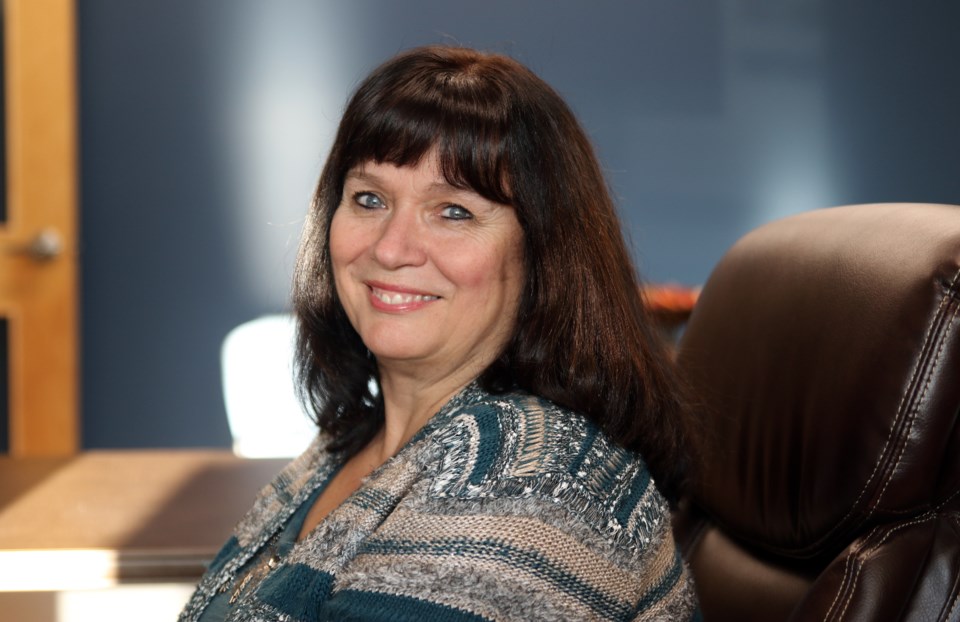THUNDER BAY -- If you've received local services in French, chances are Angèle Brunelle had something to do with it.
The executive director of l'Acceuil Francophone will join the Order of Ontario in a ceremony for 26 new appointees on June 29, 2017 for her work in bolstering Francophone rights, services and identity in Northwestern Ontario.
"I'm very honoured," Brunelle said upon hearing she had been nominated to receive the province's highest honour. "I'm very surprised but I'm very honoured."
Brunelle moved to Thunder Bay in 1978 from Kapuskasing, a Northeastern Ontario town where over two thirds of residents identify French as their first language. At the head of Lake Superior, she found a cultural landscape nearly devoid of French culture and language, but for a small pocket she discovered at St. Edward School.
She joined St. Edward's Parent Teacher Association and soon thereafter, became one of the three Francophone trustees on the 15-member Catholic school board. Brunelle remembers the board's sensitivity to the need for a certain degree of autonomy among its Francophone members and the families they represented.
She grew to believe the broader Francophone community was going to need its own school board.
"It's very hard when you don't have the authority to decide what's good for your school," she said.
"It's very hard to make decisions when you have no control over the budget. In '98, that changed."
Twenty years after she arrived, Brunelle's efforts came to fruition when Ontario bestowed the three-school, Conseil Scholaire de District Catholique des Aurores Boreales on the region in 1998. She was elected its first chairwoman.
"There was no structure so we had to build from scratch," she recalled.
"I think I've never worked harder in my life but I was never so proud of anything in my life either. To see it grow and improve, it's really rewarding."
The board has since grown into a 10-school system delivering Francophone programming between Red Lake and Marathon, the local Franco-Superieur elementary school it inherited from the Catholic board. It also built La Verendrye High School Le Centre Grandir en Francais daycare centre in Thunder Bay, both of which opened in 2004.
Brunelle chaired the board from 1998 to 2010, all together spending 20 years building and steering Francophone education. She said enrolment today is higher than it has ever been.
Over that time, she came to see the difference between simply being engaged in her community and being actively involved in the gears of governance. It redefined her commitment to public service.
"It's only when you get involved in the decision-making process that you can really make change," she said.
"You can't make real change just working in the community. you have to be involved and you have to be involved in the decision process. You have to be in the governance piece."
That success motivated Brunelle to shift gears into the health sector. She began working with l'Acceuil Francophone in 1996, an organization that breaks down barriers to patients receiving health services in French. Taking a seat on the hospital board was a natural transition but solutions proved more compromising than they did in education.
“When I left education, I thought it was where we wanted to be but in health, there was a lot more we could do," Brunelle said.
"It’s not as defined in the health care system, compared to education. You don’t want a parallel system. You have to work within the system, so how do we improve?”
Brunelle rose to become the board's chairwoman as she pushed for French language services to become available in aging and homecare services while making small changes like placing French magazines in physicians' offices once schools were finished with them.
In 2011, she found herself in a seat on the Northern Ontario School of Medicine board when it was cut from 35 to 16 members. Six current board members are fluent French speakers and NOSM accepts approximately 20 per cent French-speaking students annually.
Brunelle's office is now located at the Regroupement des Organismes Francophone de Thunder Bay, a burgeoning co-op of seven Francophone organizations on a Van Norman Street former arcade site.
As of the 2011 census, 2.4 per cent of Thunder Bayites identify French as their mother tongue and nearly 900 people say French is the language spoken most often in their homes.
Brunelle said she sees young professionals who rose through the French education system who are now able to help Thunder Bay fulfill the Canadian promise of bilingualism.
"I think what I'm most proud of is to see so many young kids that are now leaders in our community who went ot our school at this agency or I see them at the hospital. I see them as NOSM students. It’s so nice to see see them growing up and being able to live in French and being able to offer services to the French community - -but not exclusively."
